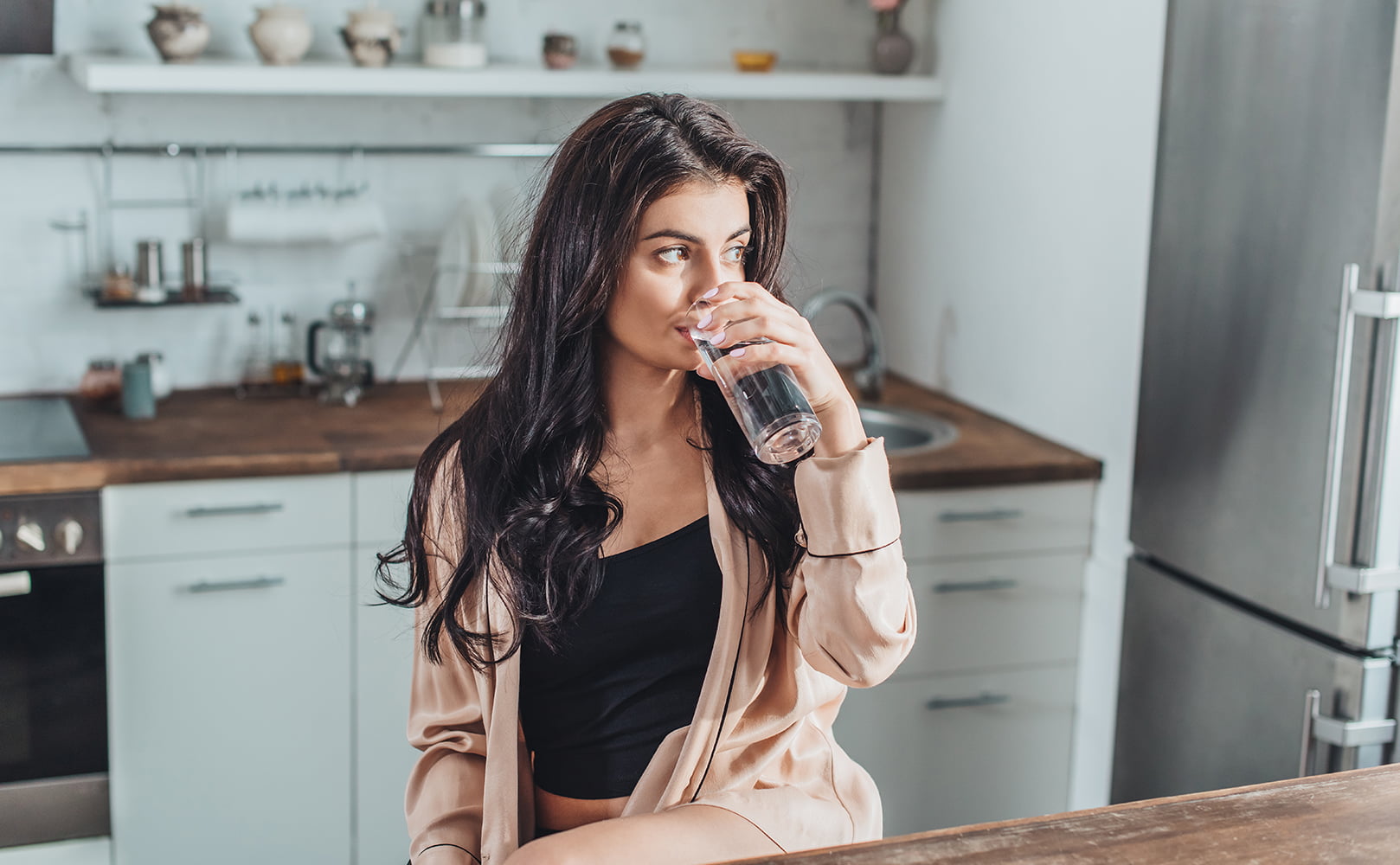Are UV Water Purifiers Harmful? Is UV Treated Water Dangerous?
Written by: Alexandra Uta // Last Updated: Nov 25, 2022
This page may contain affiliate links. If you buy a product or service through such a link we earn a commission at no extra cost to you. Learn more.
The term ‘UV rays’ is tainted with negativity. It is well known that prolonged exposure to them from the sun can cause health issues.
As such, it only makes sense that there are some who are skeptical about treating their water with UV rays to make it safe to drink.
So are UV water purifiers actually dangerous? Is UV-treated water harming us? Let’s find out.
Key Takeaways
- UV Water purifiers are not harmful, and in fact, are safer to use than not.
- UV-treated water is perfectly safe for human consumption, killing 99.9999% of pathogens in the water when used effectively.
- The only time a purifier could be dangerous is if you expose your skin or naked eye to the bulb while it is on. The design of the purifier prevents this, though.
Are UV Water Purifiers Harmful?
A UV water purifier works by exposing bacteria, viruses, and other pathogens in water to UV-C light. UV light inactivates the DNA of the microorganisms, so they are no longer able to replicate and cause illness.
And that’s all! So far, there is zero scientific evidence that a UV water purifier can be harmful.
It is not recommended to look directly at the UV-C lamp in the purifying unit, as it can be dangerous to the naked eye. However, the UV lamp itself is encased in a chamber, where the water flows through exposing it to the UV rays. The UV lamp cannot be seen in the chamber, so you are not able to expose your eyes or skin to the rays of the lamp. Water is the only thing that will be affected by UV-C exposure unless you touch or look at the UV bulb while it is on.
Is UV Treated Water Dangerous?
UV treatment does not make water unsafe for human consumption. In fact, considering it can kill microorganisms that cannot be seen, it is considerably safer than drinking non-UV-treated water.
It does not use harmful chemicals to disinfect, such as chlorine. It is actually more effective than chlorine treatment as it attacks protozoa, which chlorine is not able to remove. A UV water purifier is also much easier to maintain than chemical treatment options, and safer to use.
When Is UV-Purified Water Not Safe?
The only time in which UV-treated water could be dangerous is if the disinfection process is carried out improperly and not all the microorganisms in the water are killed. This has nothing to do with the safety of the UV treatment at all, but rather the quality of the water it needs to disinfect, and the functionality of the unit itself.
With proper care, maintenance, and relevant pre-filters, UV-treated water is extremely safe. When used in optimal conditions, a UV water purifier can kill 99.9999% of harmful pathogens in your water supply.
Simply put, UV water purifiers are unsafe to use in murky waters or water with particulate. When there is high turbidity in the water, the UV light cannot effectively penetrate it to reach all the microorganisms, and they may not be effectively killed. In these cases, you need a pre-filtration system.
Other Water Contaminants
Another scenario when UV treated water could be dangerous is when it contains contaminants aside from microorganisms – think PFAS or lead – that cannot be eliminated by the UV disinfection process.
Of course, this is not about the UV treatment itself but still something to keep in mind.
Advantages and Disadvantages of a UV Water Purifier
Advantages
- High rate of disinfection (99.9999%) if used under the right conditions.
- They do not use any chemicals to treat the water, not leaving an unpleasant taste or smell from chemical treatment.
- It is very energy efficient, as the main energy consumption comes from the bulb, which uses about as much electricity as a regular household lightbulb.
- Does not require expensive maintenance.
- Does not produce any waste and is one of the more eco-friendly methods of water disinfection.
- Minimal long-term maintenance is needed, and maintenance can be done yourself.
- As no chemicals are used, chemical damage to your water pipes is not an issue.
- Works instantly for immediate disinfection.
- Takes up very little space compared to other water purifiers and filters.
Disadvantages
- Kills only pathogens, it does not do anything to else to clean your water.
- Does not improve the smell or taste of water.
- Requires electricity for operation and can be affected by power cuts.
- The performance can be affected by the cleanliness of the water.
- Hard water requires additional treatment.
- Water sometimes comes out warm.
- Difficult to visually inspect the lamp to see if there are any issues without opening the system.
If you have any questions about UV treated water dangers please don’t hesitate to leave a comment below!
Information provided on BOS is for educational purposes only. The products and services we review may not be right for your individual circumstances.
We adhere to strict editorial guidelines. Rest assured, the opinions expressed have not been provided, reviewed, or otherwise endorsed by our partners – they are unbiased, independent, and the author’s alone. Our licensed experts fact-check all content for accuracy. It is accurate as of the date posted and to the best of our knowledge.


